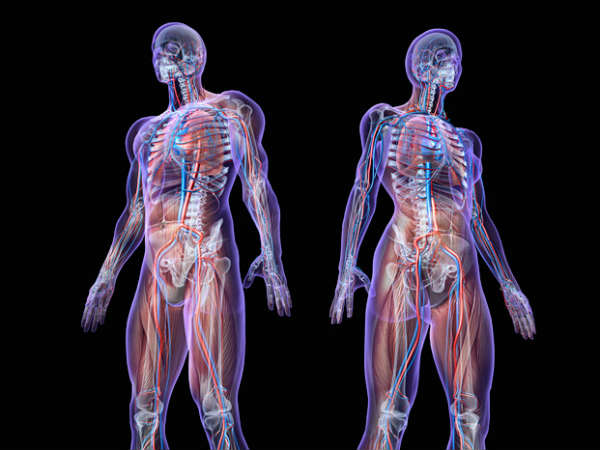Just In
- 53 min ago

- 4 hrs ago

- 7 hrs ago

- 9 hrs ago

Don't Miss
- Sports
 IPL 2024: 'Nothing To Do With Mental Health' - Glenn Maxwell Clarifies His Absence From RCB Playing 11
IPL 2024: 'Nothing To Do With Mental Health' - Glenn Maxwell Clarifies His Absence From RCB Playing 11 - News
 Karnataka Weather Alert: Will Bengaluru See Rain Before May?
Karnataka Weather Alert: Will Bengaluru See Rain Before May? - Finance
 Tata Motors To Utilize New $1 Billion TN Plant For Jaguar Land Rover Cars
Tata Motors To Utilize New $1 Billion TN Plant For Jaguar Land Rover Cars - Movies
 Very Parivarik Episode 5 OTT Release Date, Platform: Get Ready For Major Twist; Here's When & Where To Watch
Very Parivarik Episode 5 OTT Release Date, Platform: Get Ready For Major Twist; Here's When & Where To Watch - Technology
 AMD Revamps Business Computing with AI-Fueled Ryzen PRO 8000 Series Processors
AMD Revamps Business Computing with AI-Fueled Ryzen PRO 8000 Series Processors - Education
 RMLIMS Nursing Officer Recruitment 2024; Apply for 665 Vacancies, Know more
RMLIMS Nursing Officer Recruitment 2024; Apply for 665 Vacancies, Know more - Travel
Telangana's Waterfall: A Serene Escape Into Nature's Marvels
- Automobiles
 The Rezvani Retro RR1 Is A Modified Porsche 911 Done Right
The Rezvani Retro RR1 Is A Modified Porsche 911 Done Right
Does COVID-19 Evolve In Humans? Know How It Poses Challenges To Vaccine Development
COVID-19 is currently the biggest, health and economic threat to the world. Researchers and scientists across the world are constantly making efforts to find its treatment and develop a vaccine to combat it.

The biggest challenge in developing the vaccine of COVID-19 is scientists are unable to understand the virus yet, especially its evolution in the human body since its first discovery. This knowledge is important to design an effective vaccine and manage the pandemic.

About The Study
In a study, 377 genome sequences were taken out of which 194 were isolated from COVID-19 infected patient across 21 different countries, 101 from known flu-causing coronavirus, 21 from animals and environment and the remaining 61 from potentially harmful viruses like SARS, MERS, Ebola and Dengue. [1]
After evaluating the genomes of COVID-19 with others, the scientists found that it has strong similarities with SARS, two strains of horseshoe bats and pangolins. The study also says that COVID-19 has moderate similarity with flu-causing coronavirus and very small similarity with Ebola.
COVID-19 has actively evolved and is evolving in the human race. The statement is made after proper observation of multiple COVID-19 strains across different countries from December 2019 to March 2020. These data are essential to understand different viruses and their similarities with COVID-19 so that an effective vaccine and antibodies can be developed in the near future.

Is COVID-19 Virus Evolving In The Human Body?
The study was carried out on 194 complete genome sequences of COVID-19 strain isolated from humans. The 21 countries from where these genomes were obtained are China (85), USA (32), Singapore (11), Australia (10), Japan (9), South Korea (9), France (9), Italy (5), Switzerland (5), Germany (3), Sweden (2), Thailand (2), England (2), Brazil (2), Canada (2), Nepal (1), Cambodia (1), Vietnam (1), Belgium (1), Mexico (1) and New Zealand (1).
The researchers calculated the average similarities between the strains from different months. At first, the average similarities were very high (0.999054) with 29.75 nucleotide differences but in later months, due to mutation, the similarities decreased (0.988468) to 348 nucleotide differences. The result shows the evolution of COVID-19 virus strain which may result in either more severe form or attenuated form.

To Conclude
The above study shows that divergence of COVID-19 virus strain in the human body is possible. They will continue to mutate with time and pose a challenge for scientists in developing a vaccine. However, the severity of the mutation is still unknown. They can either become more lethal or attenuate.
The variations in the virus strain should be the main concern as it says about the behaviour of the virus. This will help identify why people in some countries are not severely affected while in some countries, the virus has taken the lives of many.
-
 healthCOVID Surge In India: Do You Need A COVID-19 Booster Shot?
healthCOVID Surge In India: Do You Need A COVID-19 Booster Shot? -
 disorders cureCommon COVID Symptoms In Fully Vaccinated Individuals: What You Should Know
disorders cureCommon COVID Symptoms In Fully Vaccinated Individuals: What You Should Know -
 wellnessMild COVID Linked To Life-Threatening Blood Clots, Increased Risk Of Cardiovascular Disease; Study
wellnessMild COVID Linked To Life-Threatening Blood Clots, Increased Risk Of Cardiovascular Disease; Study -
 wellnessCOVID-19 Variants In India: New COVID Variant May Pose Threat To Elderly People
wellnessCOVID-19 Variants In India: New COVID Variant May Pose Threat To Elderly People -
 basicsCovid-19 Linked To Early Onset Of Periods: What You Need To Know
basicsCovid-19 Linked To Early Onset Of Periods: What You Need To Know -
 wellnessCOVID XBB Variants Of Omicron In India: What You Should Know
wellnessCOVID XBB Variants Of Omicron In India: What You Should Know -
 disorders cureNew Omicron Subvariant BQ.1 Detected In Maharashtra: What You Should Know
disorders cureNew Omicron Subvariant BQ.1 Detected In Maharashtra: What You Should Know -
 disorders cureOmicron BF.7 In India, Risk Of Fresh Wave During Diwali: What You Should Know
disorders cureOmicron BF.7 In India, Risk Of Fresh Wave During Diwali: What You Should Know -
 wellnessCoronavirus Residues Might Be Causing Long COVID: New Study
wellnessCoronavirus Residues Might Be Causing Long COVID: New Study -
 wellnessCentury-Old TB Vaccine Could Be Effective Against Covid-19 And Other Infections: New Study
wellnessCentury-Old TB Vaccine Could Be Effective Against Covid-19 And Other Infections: New Study -
 disorders cureCovid-19 Patients At Risk Of Neurological & Psychiatric Conditions Two Years After The Infection: New Study
disorders cureCovid-19 Patients At Risk Of Neurological & Psychiatric Conditions Two Years After The Infection: New Study -
 wellnessCOVID In Smokers: An Expert Explains
wellnessCOVID In Smokers: An Expert Explains


 Click it and Unblock the Notifications
Click it and Unblock the Notifications



